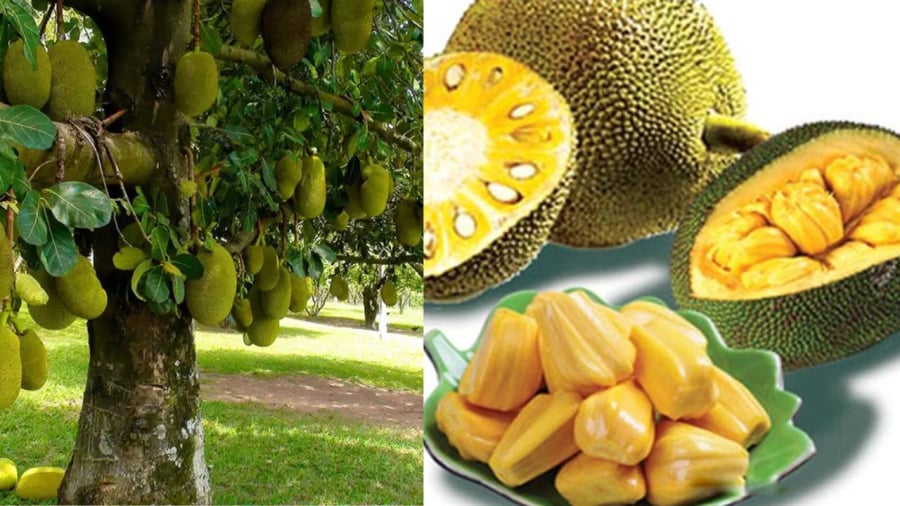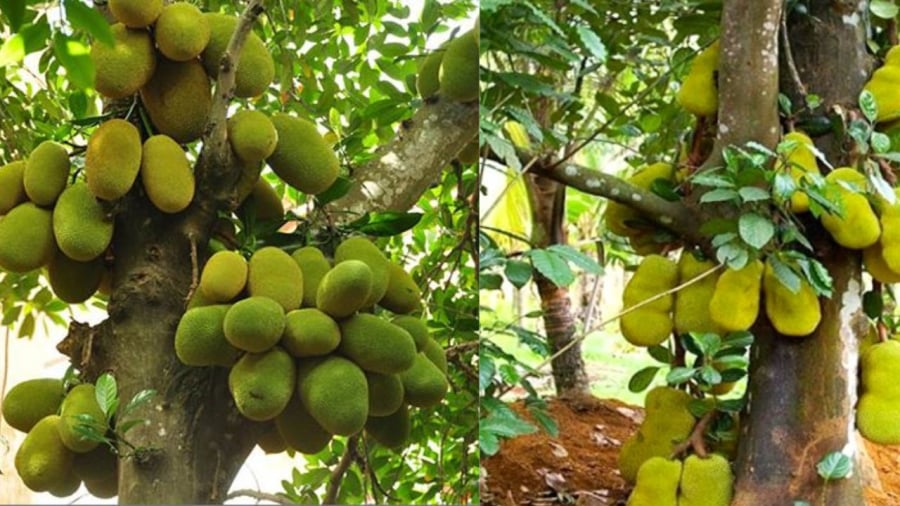The Jackfruit: A Fruit of Many Values
The jackfruit tree is a source of numerous economic benefits. Its fruit is sweet and delicious, ranking high among valuable tropical fruits. Jackfruit wood is durable and precious, making it ideal for sculpting statues, constructing temples, and crafting household items. In the past, the Vietnamese believed that a house with a tiled roof and a jackfruit tree signified wealth and prosperity.
Jackfruit is a tree that bears delicious and high-value fruits that are packed with nutrients. Traditionally, its leaves were used as fuel and also held sacred significance, being used for offering steamed rice and congee in spiritual rituals.

Jackfruit: A Treasure of Fruit and Wood
Why is it Taboo to Plant Jackfruit Trees in Front of Your House?
There is a certain reluctance to plant jackfruit trees in front of houses due to feng shui concerns. Jackfruit trees are typically associated with temples, and planting them in front of a house is believed to increase negative energy. As a result, jackfruit trees are often found on wasteland or near temples, and less commonly in front of residences. There is also a belief that these trees attract spirits, which can cause fear and bring bad luck to the household.
To produce tasty fruit, jackfruit trees require ample space. They have large trunks, lush foliage that sheds leaves frequently, and their size can affect the aesthetics of a house. The presence of a massive jackfruit tree in front of a house can impact the family’s living space, obstruct pathways, and block the view. Additionally, jackfruit trees can block sunlight and wind from entering the house.

Jackfruit Trees: A Front-Yard Taboo
The constant leaf shedding of jackfruit trees means more cleaning for homeowners. Moreover, fallen jackfruit leaves and fruits can create a mess in front of the house, fostering the growth of mold and causing a rotten smell.
Historically, jackfruit trees were predominantly planted in temples, and people were reluctant to have them in their homes. While jackfruit trees possess strong energy, it can be challenging for a typical household to harness this energy, potentially resulting in the depletion of positive energy. On the other hand, planting jackfruit trees in temples helps balance the energy.
How Relevant is this Belief Today?
Today, jackfruit remains a beloved fruit, but fewer people choose to plant it in front of their houses. Most people prefer to buy jackfruit from the market. Jackfruit is typically grown as a commercial crop rather than in individual households. It takes a long time for jackfruit to bear fruit, and it requires ample space to produce a bountiful yield. Therefore, most families opt for collective farming or home gardening instead of solitary cultivation.
However, the taboo against planting jackfruit trees in front of houses is now primarily based on economic and aesthetic considerations rather than spiritual beliefs.
With modern agricultural techniques, smaller jackfruit tree varieties suitable for home gardening have been developed. If you wish to grow jackfruit at home, you will need a spacious garden for larger varieties or opt for the newly available smaller varieties that can be grown in pots. These new varieties bear fruit faster than their traditional counterparts.
Information provided is for reference only






























